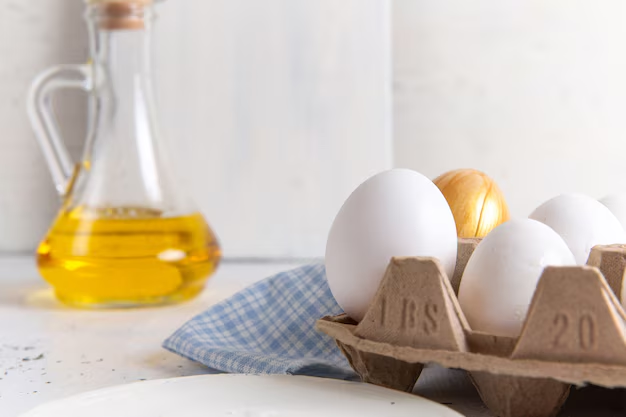How Long Can You Keep Cooked Eggs in the Refrigerator?
When it comes to versatile and nutritious foods, eggs are often at the top of the list. Whether you're whipping up a batch of deviled eggs, frying up an omelet, or simply boiling them for a quick snack, eggs are a staple in many kitchens. But once you've cooked them, how long are they safe to keep in the refrigerator? Before you dive into your leftovers, let's explore the best practices for storing cooked eggs and maximizing their shelf life.
🥚 Understanding Cooked Egg Shelf Life
Cooked eggs, like many other foods, need proper storage to remain safe to eat. Generally, most cooked eggs can be safely stored in the refrigerator for up to a week. This estimate provides a good rule of thumb, but various factors can influence the shelf life of your cooked eggs.
Factors Influencing Safe Storage
- Type of egg preparation: Different cooking methods may affect how long the eggs stay fresh. Hard-boiled eggs, when stored unpeeled, tend to last longer than scrambled eggs or egg-based dishes.
- Storage conditions: Keeping the eggs at a consistent temperature of 40°F (4°C) or lower in a fridge can help them remain fresh longer.
- Egg freshness before cooking: The original freshness of the eggs before cooking can impact the overall storage period.
🥗 Varieties of Cooked Eggs & Their Storage
Hard-Boiled Eggs
Hard-boiled eggs are a popular choice for salads, snacks, and breakfast items. They are commonly stored in the refrigerator.
- In-shell storage: When kept in their shells, hard-boiled eggs can last about one week. Leaving the shell intact acts as a protective barrier against bacteria and moisture loss.
- Peeled storage: If peeled, it's a good idea to consume them more quickly, ideally within a few days, as they lose their protective layer and may absorb odors from the refrigerator.
Scrambled Eggs
Scrambled eggs should ideally be eaten immediately after cooking due to their tendency to dry out upon cooling. However, if you have leftovers:
- Shelf life: Store them in an airtight container and consume them within 3 to 4 days.
- Reheating tips: Add a splash of milk or a touch of butter when reheating to regain some moisture.
Egg-based Dishes
For casseroles, quiches, or other egg-centric dishes, storage may vary. Ingredients like cheese, meats, and vegetables can influence the overall shelf life.
- Storage duration: These should typically be consumed within 3 to 4 days.
- Freezing options: If you have excess, freezing is an option for many egg-based dishes, although texture may be affected.
🥶 Best Practices for Storing Cooked Eggs
Keeping your cooked eggs fresh in the refrigerator is a simple task if you follow a few best practices:
- Airtight containers: Store eggs or egg dishes in airtight containers to prevent moisture loss and flavor absorption from other foods.
- Label and date: Clearly label and date your containers to keep track of freshness.
- Refrigerate promptly: Eggs should be refrigerated within two hours of cooking to minimize bacterial growth.
- Avoid the fridge door: Store eggs towards the back of the fridge, where temperatures are more consistent, rather than in the door where temperatures may fluctuate.
🧊 Can You Freeze Cooked Eggs?
While freezing cooked eggs isn't always recommended due to potential changes in texture, it is possible in some cases:
- Best candidates for freezing: Scrambled eggs and egg-based casseroles often freeze better than boiled eggs, which can become rubbery.
- Freezing tips: Allow the eggs to cool completely before freezing and use freezer-safe containers or bags. Label and date the containers, and aim to use them within 1 to 2 months for best quality.
🤔 Signs of Spoilage
Even with careful storage, cooked eggs can spoil. It's important to recognize the signs of spoilage to avoid consuming bad eggs:
- Odor: A strong, unpleasant odor is often the clearest sign that eggs are past their prime.
- Texture changes: If the texture becomes slimy or excessively dry, the eggs may no longer be good to eat.
- Appearance: Any visible mold or discoloration is a clear indication of spoilage.
📝 Quick Reference Summary
Here’s a handy summary to help ensure your cooked eggs stay fresh and safe:
- 🚫 Avoid leaving cooked eggs out at room temperature for more than two hours.
- 🥚 Store hard-boiled eggs in their shells for up to one week.
- 🔥 Consume scrambled eggs within 3 to 4 days, and add moisture when reheating.
- 🍲 Egg-based dishes typically last 3 to 4 days in the fridge.
- 📅 Label and date containers to track freshness easily.
Closing Thoughts
Eggs are undoubtedly a kitchen staple due to their versatility and nutritional benefits. Proper storage extends their shelf life, ensuring they're safe to eat and taste as delicious as when they were first cooked. By adhering to refrigeration guidelines and being mindful of spoilage signs, you can enjoy your cooked eggs with confidence, avoiding food waste and making the most of this nutritious food staple.

